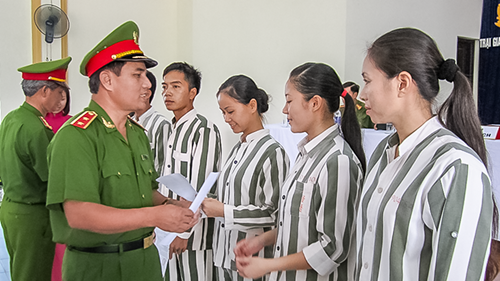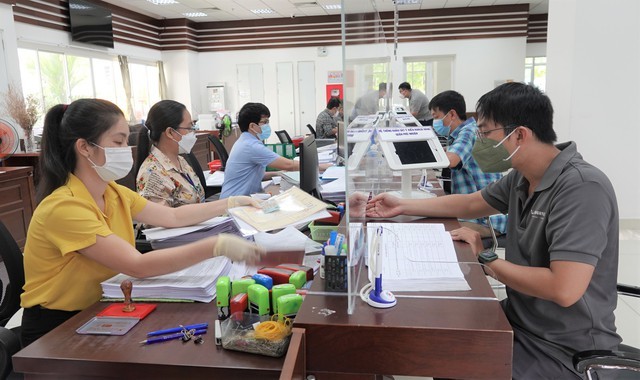This notable new provision is stipulated in Decree 133/2020/ND-CP, which provides detailed regulations on the implementation of certain articles of the Law on Criminal Judgment Execution.

Regulations for aggravating circumstances of disciplinary forms against inmates in Vietnam (Illustration)
Decree 133/2020/ND-CP has now supplemented regulations on handling violating inmates, specifically:
Violating inmates must be promptly and strictly disciplined in accordance with the law. When disciplining inmates, the nature, degree, consequences, motives, goals, and causes of the violation must be considered and assessed. Mitigating and aggravating circumstances should also be reviewed, along with the level of remorse, sincerity in confessions, determination to correct the violation, and efforts to rectify the consequences to decide on appropriate disciplinary measures.
Violating inmates with any of the following circumstances may be considered for aggravating circumstances of disciplinary forms:
- First-time violation causing minimal consequences; sincere and honest declarations about their own violations and those of other inmates; proactive prevention of other inmates' violations; active efforts to rectify the consequences they caused (if any).
- Remorse, recognition of their mistakes, self-admission of faults, and active receptiveness to education and correction of their violations.
- Violations due to threats, coercion, compulsion, incitement, or luring by other inmates; mental agitation caused by other inmates' violations or other objective reasons.
- Achievements or exemplary contributions in the movement to comply with prison sentences, with decisions of commendation.
- Elderly inmates: males aged 70 years or older, females aged 65 years or older; disabled or physically/mentally impaired; serious illness, severe health issues; illness affecting cognitive and behavioral control; pregnant female inmates, on maternity leave, or nursing children under 36 months old; inmates under 18 years old.
Mandatory regulations when disciplining inmates include:
- inmates must have a period of monitoring and testing to acknowledge their reformation.
- For reprimand discipline, the monitoring and testing period is 1 month;- For warning discipline, the monitoring and testing period is 3 months;- For confinement in a disciplinary room, the monitoring and testing period is 6 months from the effective date of the disciplinary decision. For confinement, it begins from the date the inmate is released from the disciplinary room.
- If a inmate does not violate during the monitoring and testing period, they will be acknowledged as having reformed upon the period's conclusion.
- Unacknowledged reformed inmates who receive new disciplinary decisions will have the total monitoring and testing period accumulated from both old and new decisions.
- inmates confined in a disciplinary room are only allowed personal belongings as regulated. Each disciplinary room accommodates no more than 2 disciplined inmates.
- During confinement, if inmates acknowledge their violations, express remorse, and resolve to rectify, they can be considered for early release from the disciplinary room.
- In cases of illness, injury, or weak health, a record is made, and they are taken out for treatment. Once stable, their disciplinary status can be reassessed or they can be considered for early release from the disciplinary room.
Apart from mitigating circumstances, Decree 133/2020/ND-CP also regulates aggravating circumstances. These are new regulations that were not previously addressed in Decree 117/2011/ND-CP.
Le Hai
 Article table of contents
Article table of contents







.Medium.png)
.Medium.png)
.Medium.png)
.Medium.png)
